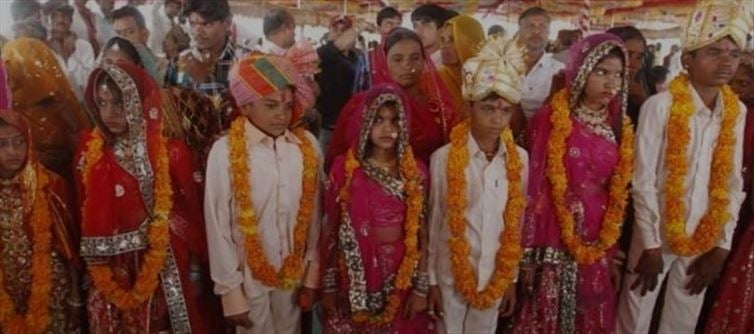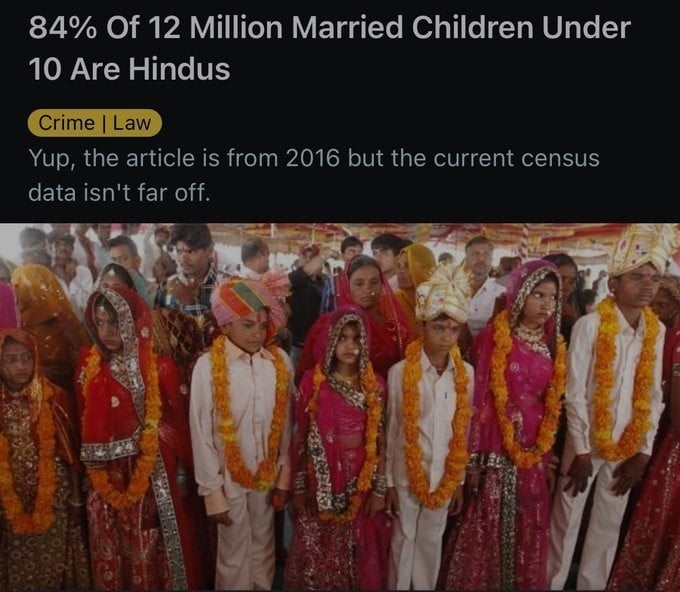
The high prevalence of child marriage among Hindu communities can be linked to multiple socio-cultural factors, particularly in states with higher concentrations of Hindu populations where poverty and limited education intersect with traditional norms. In some cases, these marriages are a result of poverty-driven decisions by families who may believe marrying off a child can reduce financial burdens or bring perceived security to a family through alliances. Despite legal frameworks such as the Prohibition of Child marriage Act (2006), enforcement remains inconsistent across regions, particularly in rural and marginalized areas where awareness and resources to prevent child marriages are limited.
 Addressing child marriage requires a comprehensive approach, focusing on education, economic empowerment, and stricter enforcement of existing laws. Empowering families and communities with knowledge about the adverse effects of child marriage and offering alternatives—such as access to schooling and financial aid—could help in breaking the cycle. Additionally, implementing community outreach and educational programs that involve local leaders and influencers can shift cultural perceptions over time.
Addressing child marriage requires a comprehensive approach, focusing on education, economic empowerment, and stricter enforcement of existing laws. Empowering families and communities with knowledge about the adverse effects of child marriage and offering alternatives—such as access to schooling and financial aid—could help in breaking the cycle. Additionally, implementing community outreach and educational programs that involve local leaders and influencers can shift cultural perceptions over time.




 click and follow Indiaherald WhatsApp channel
click and follow Indiaherald WhatsApp channel